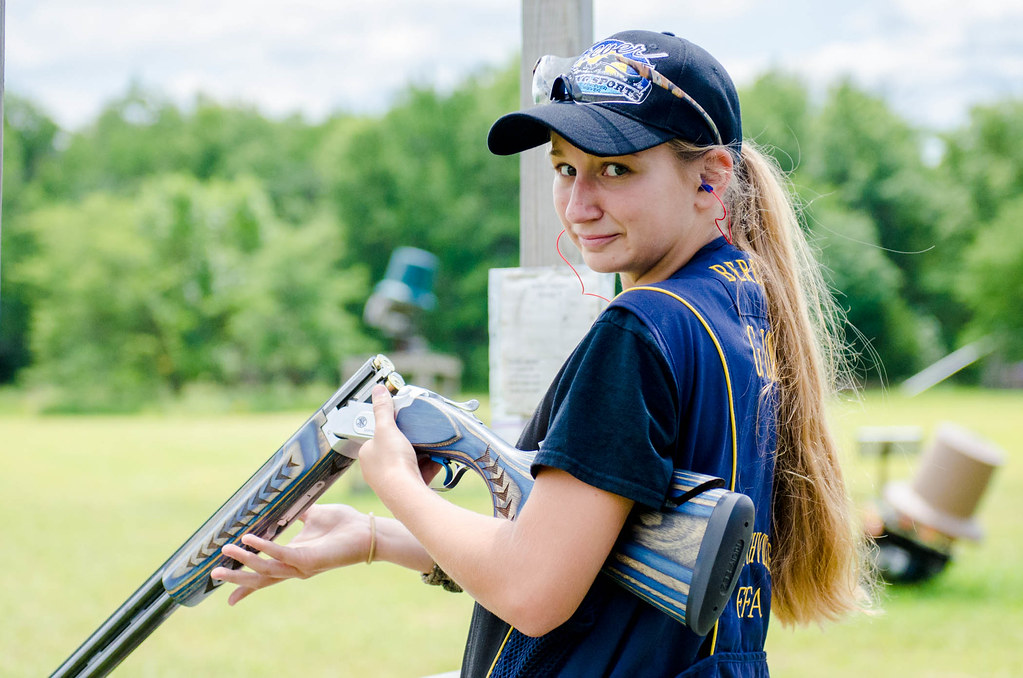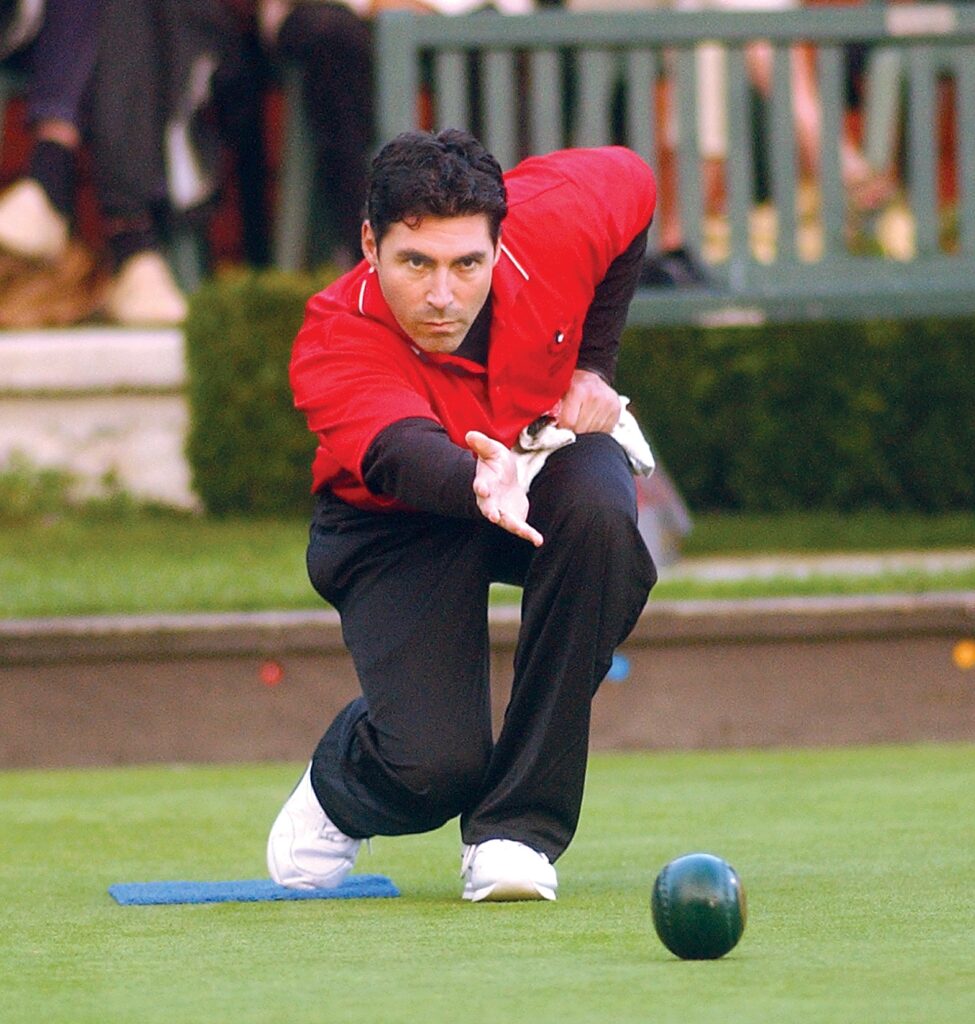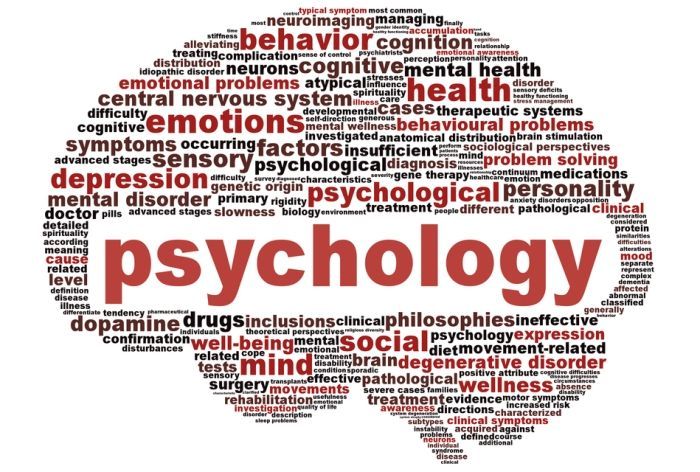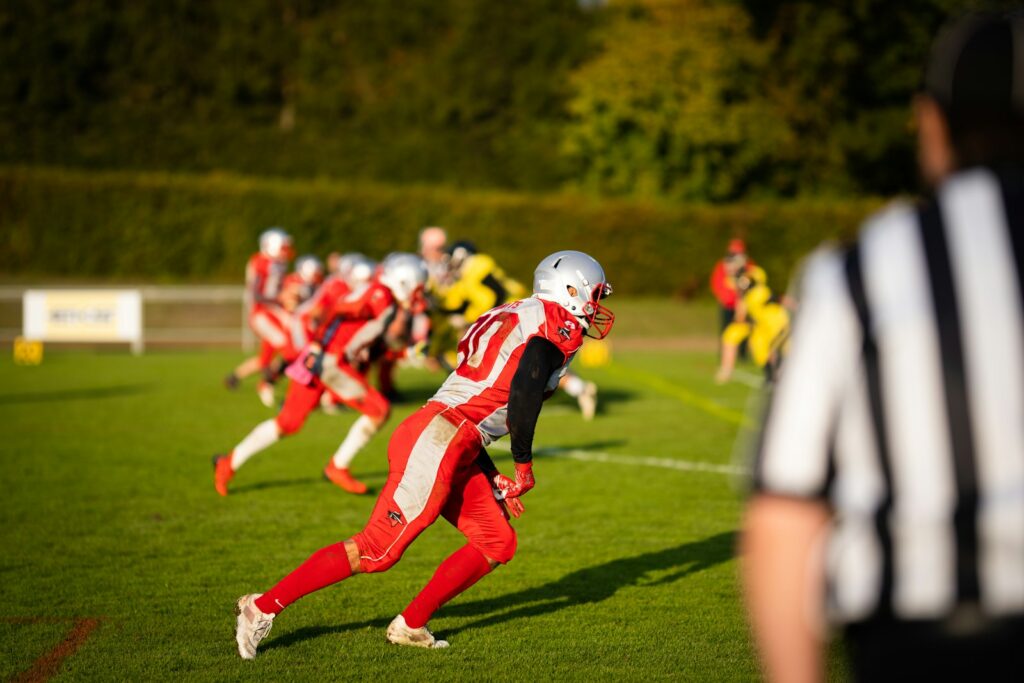
The world of elite sports is a fascinating blend of physical prowess and mental fortitude. We celebrate the athletic feats, the incredible records, and the nail-biting finishes, but beneath the surface of every champion lies a complex psychological landscape. It’s here that the specialized field of sports psychology steps in, providing the unseen edge that often separates good from truly great. For those looking to elevate performance, recover from setbacks, and build unshakeable mental resilience, understanding the deep science of the mind is paramount.
While the idea of a ‘sports coach’ might conjure images of whistles and tactical diagrams, a growing number of professionals are recognizing the profound impact of advanced psychological training. A Ph.D. in Sports Psychology, far from being just an academic curiosity, is a rigorous journey into the very heart of human performance. It equips individuals with the tools to not only understand but actively shape the mental game, making them invaluable assets to athletes, teams, and organizations alike. So, if you’ve ever wondered what it takes to unlock peak potential, both on and off the field, prepare to dive deep into the fascinating world of this highly specialized doctorate.

1. **Understanding the Ph.D. in Sports Psychology: Beyond the Sidelines**
A Ph.D. in Sports Psychology isn’t just another degree; it’s an exploration into the intricate relationship between the human mind and athletic endeavor. These specialized programs delve into “psychosocial and mental factors that influence athletic performance and engagement,” offering a unique lens through which to view and optimize human potential. Graduates emerge with a profound understanding of how athletic activity impacts psychology, alongside clinical techniques designed to fine-tune performance.
Indeed, this doctoral pathway often opens doors to thrilling career opportunities spanning “research, academia, or client-facing professional practice.” It’s a versatile credential that prepares individuals for leadership roles and advanced work in the field. Students can expect extensive field training, including internships and practicums, which bridge the gap between theory and real-world application, though some institutions even offer the flexibility of fully online programs.
While the journey to a Ph.D. in Sports Psychology typically demands about four years of dedicated study, depending on credit requirements, it’s a commitment with significant payoffs. It’s also worth noting that the American Psychological Association (APA) considers sports psychology a postdoctoral specialization, emphasizing its advanced nature within the broader psychological landscape. This means that a foundational understanding of psychology is built upon, leading to a truly specialized expertise.
Moreover, for those considering this path, it’s crucial to understand the distinction from a Doctor of Psychology (Psy.D.). While both are doctoral degrees, a Ph.D. places “a significant emphasis on research, scholarship, and advancing knowledge in the field,” preparing students to “conduct original research, complete a dissertation, and publish scholarly articles.” This focus primes graduates for high-level roles as “licensed sport psychologists, performance consultants, university professors, and directors of mental training programs for elite athletes,” addressing key areas like peak performance, injury recovery, team dynamics, and motivation.

2. **The Diverse Career Arena: What a Ph.D. Unlocks**
The allure of a Ph.D. in Sports Psychology lies not only in the depth of knowledge it offers but also in the expansive professional horizons it creates. Graduates frequently find themselves at the forefront of their field, pursuing stimulating careers in “academia or specialized psychological research organizations.” However, the reach of this degree extends far beyond scholarly pursuits, enabling professionals to “provide guidance for clients like athletes, sports teams, coaches, and athletic organizations” directly impacting performance and well-being.
Crucially, aspiring professionals must understand the nuances of licensure. To legally use the coveted title of “psychologist” in a job role, an individual must possess “a valid state-issued license.” This rigorous process typically involves “completing a qualifying Ph.D. or Psy.D. program, accumulating the necessary clinical training hours, and passing the required exams.” State requirements might even necessitate an APA-accredited doctoral degree, underscoring the importance of choosing the right program from the outset.
Of course, not every path in sports psychology requires full licensure. You can still make a massive difference without holding the “psychologist” title. For those passionate about direct client work, the “certified mental performance consultant (CMPC) credential offers an appealing alternative pathway.” This route, recognized by the Association for Applied Sport Psychology (AASP), empowers practitioners to work directly with athletes, focusing on mental resilience and overcoming psychological hurdles without the extensive clinical licensure requirements.
Ultimately, earning a Ph.D. in sports psychology is a launchpad to a variety of influential and impactful roles. It prepares students for a range of “high-level roles such as licensed sport psychologists, performance consultants, university professors, and directors of mental training programs for elite athletes.” These professionals become vital figures in helping individuals and teams achieve their utmost potential, both physically and mentally.

3. **Becoming a Licensed Sports or Performance Psychologist: The Clinical Edge**
For many, the pinnacle of a sports psychology career involves stepping into the role of a licensed sports or performance psychologist. This profession isn’t merely about understanding the game; it’s about providing essential “clinical treatment services to individual clients and groups” with a profound impact on their mental health and performance. It’s a hands-on, deeply rewarding career that demands a specialized skill set and rigorous training.
These highly qualified professionals “perform assessments, diagnose psychological conditions, and use advanced practice models to create treatment or management plans.” Think of them as the mind-doctors of the athletic world, equipped to address complex psychological issues that can hinder an athlete’s progress or well-being. Their expertise covers a vast spectrum, ensuring that mental health is as prioritized as physical health.
And let’s talk about the payoff! Beyond the intrinsic satisfaction, this role comes with a significant financial reward. According to data from May 2023, the “Average Annual Salary” for a Licensed Sports or Performance Psychologist stands at an impressive “$117,750.” This reflects the high demand and specialized nature of the work, acknowledging the extensive education and training required to reach this level of practice.
To achieve this esteemed position, the path is clear: candidates must “complete a qualifying Ph.D. or Psy.D. program, accumulating the necessary clinical training hours, and passing the required exams.” State licensure rules are stringent, often requiring a doctoral degree formally accredited by the APA, ensuring that practitioners meet the highest standards of professional competence and ethical conduct.

4. **Shaping Future Minds: The Role of a Postsecondary Psychology Instructor**
Beyond direct client interaction, a Ph.D. in Sports Psychology also opens doors to a vibrant academic career, particularly as a postsecondary psychology instructor. These educators are the architects of future generations of sports psychology professionals, tasked with designing “and lead courses at the undergraduate and graduate levels.” They are the torchbearers, passing on critical knowledge and fostering new talent.
Their responsibilities extend well beyond classroom lectures. Instructors actively “supervise graduate students,” guiding them through complex research and clinical projects, and play a crucial part in “departmental administrative duties” that keep academic programs running smoothly. Furthermore, many contribute significantly to the field by engaging in “research programs,” advancing the collective understanding of sports psychology through their own scholarly work.
It’s a role that combines teaching, mentorship, and research, offering a dynamic and intellectually stimulating environment. This academic pathway, while distinct from clinical practice, is vital for the growth and evolution of sports psychology as a discipline, ensuring that cutting-edge theories and practices are continually developed and disseminated.
From a financial perspective, a postsecondary psychology instructor earned an “Average Annual Salary (May 2023)” of “$82,140.” This salary reflects a rewarding career path for those who thrive in educational settings and are passionate about contributing to the academic foundation of sports psychology. It’s an opportunity to influence the field from a different, yet equally essential, vantage point.

5. **Unraveling the Mind’s Mysteries: Life as a Sports Psychology Researcher**
For the intellectually curious, a Ph.D. in Sports Psychology can lead to a career dedicated to pure discovery: that of a sports psychology researcher. These diligent minds “use the scientific method to design, conduct, and evaluate the results of targeted studies into human behavior.” Their work is the engine of progress, constantly pushing the boundaries of what we know about the athletic mind.
As a sports psychology researcher, the focus is distinctively on “the mental aspects of sports, exercise, and physical activity.” This involves everything from understanding motivation in athletes to exploring the psychological impact of injury recovery, or even the cognitive strategies behind peak performance. Their findings provide empirical evidence that underpins clinical interventions, coaching strategies, and academic curricula.
Their contributions are invaluable, creating the bedrock of knowledge upon which all other areas of sports psychology are built. It’s a role for those who relish investigation, data analysis, and the meticulous pursuit of verifiable truths that can revolutionize how we approach mental training and well-being in sports.
Financially, this pivotal role is also well-compensated. A sports psychology researcher reported an “Average Annual Salary (May 2023)” of “$92,740.” This compensation reflects the specialized skills in research methodology, statistical analysis, and theoretical understanding required to conduct impactful studies that shape the future of sports psychology.

6. **The Certified Mental Performance Consultant (CMPC): Direct Impact on Athletes**
For those who dream of directly empowering athletes without navigating the full psychologist licensure process, the Certified Mental Performance Consultant (CMPC) credential offers an exciting and impactful alternative. CMPCs are professionals who “follow a certified career path to become credentialed by the AASP,” or the Association for Applied Sport Psychology, a leading professional organization in the field.
These consultants are on the front lines, “working directly with athletes and athletic organizations.” Their mission is clear: “helping clients perform at their peak by improving mental resilience and overcoming psychological barriers.” This could involve teaching visualization techniques, stress management strategies, goal setting, or team cohesion exercises. They are the mental strategists, finely tuning an athlete’s inner game.
The CMPC credential provides a robust framework for professional practice, ensuring that practitioners meet recognized standards of competence. It’s an ideal pathway for doctoral-level practitioners who wish to focus on applied performance enhancement rather than clinical diagnosis and treatment, offering a specialized and highly valued service within the sports ecosystem.
In terms of earnings, CMPCs maintain a respectable “Median Annual Salary (2020)” of “$76,250.” This demonstrates the significant value placed on their expertise in enhancing mental performance. It’s a testament to the fact that while the APA recognizes sports psychology as a postdoctoral specialization for licensed psychologists, the AASP’s CMPC certification provides an equally legitimate and vital avenue for professionals to contribute to the mental well-being and performance of athletes.

7. **Navigating the Investment: The Cost of a Sports Psychology Ph.D.**
Embarking on a Ph.D. in Sports Psychology is a profound investment, not just of time and effort, but also of finances. The cost of this advanced degree can vary quite dramatically, with “graduate students at private institutions pay[ing] more than twice as much tuition per year as their peers at public colleges.” This significant disparity highlights the importance of thorough research before making a commitment.
Several factors play a crucial role in determining your out-of-pocket expenses. These include “The school’s public or private status,” which, as mentioned, can swing tuition wildly. The “program’s delivery method (online or face-to-face)” also impacts costs, as do the varying fees and living expenses associated with different campus locations. And, perhaps most importantly, “The amount of financial aid you receive” can drastically alter your personal financial burden.
But here’s the good news: doctoral students often have access to a wealth of funding opportunities that aren’t typically available at earlier academic levels. These can be game-changers, potentially including “stipends, research grants, and teaching assistantships.” These valuable resources can offset tuition, provide living expenses, and even offer invaluable teaching or research experience, making the path to your Ph.D. more accessible.
It’s always a smart move to connect directly with the financial aid or admissions office of any program you’re considering to explore these options. While general figures suggest “some online doctorate programs may have an average tuition range of $30,000 to $50,000 per year,” remember that these are just averages. Many accredited programs also actively offer specific “scholarships, graduate assistantships, or military tuition discounts” that can significantly lighten the load. Don’t leave money on the table; inquire about every possibility!

8. **Demystifying Admission Requirements for Your Sports Psychology Ph.D.**
So, you’re fired up to dive deeper into the athletic mind and pursue a Ph.D. in Sports Psychology? Excellent choice! But before you can start unraveling the mysteries of peak performance, you’ll need to navigate the often-intricate world of admissions. Schools set their requirements individually, meaning there’s a good deal of variation, but some common threads tie them all together. Think of it as your first mental hurdle on the path to becoming a top-tier mental coach for athletes.
Generally, you’ll need a master’s degree and a strong academic record throughout your postsecondary schooling. While some programs are open to applicants from diverse backgrounds, having a degree in a relevant field like psychology or kinesiology will give your application a significant edge. It signals to admissions committees that you’re grounded in foundational knowledge.
Beyond your grades and degrees, experience truly shines. Admissions departments tend to view real-world involvement quite favorably. If you’ve been a high-level amateur or professional athlete, or if you’ve dedicated time working as a trainer, athletic instructor, or sports coach, these accomplishments are golden. Make sure to highlight them prominently, as they demonstrate a tangible connection to the world of sports.
Expect to submit a polished resume or CV, multiple letters of recommendation, and a compelling statement of purpose outlining your motivations, research interests, and career plans. Some programs may also require an interview or admission essay. Finally, don’t forget the Graduate Record Examination (GRE) scores, or potentially the GRE Subject Test for psychology, as these are often a prerequisite for entry.

9. **Charting Your Course: Program Timelines for a Sports Psychology Ph.D.**
Once you’ve cleared the admission hurdles, the next big question on everyone’s mind is, “How long will this journey take?” A Ph.D. in Sports Psychology is a significant time commitment, and while exact timelines can vary by institution, most programs hover around the same ballpark. We’re talking about a comprehensive educational experience, typically covering somewhere between 60-75 semester credits, which translates to roughly 20-25 individual courses.
For students dedicated to full-time study, you’ll likely need about four years to meticulously complete all the required coursework, immerse yourself in practicums and internships, and finally, bring your groundbreaking dissertation to fruition. It’s an intensive period, demanding unwavering focus and intellectual vigor, but the rewards are immeasurable. This full-time pace is the most common route for those looking to accelerate their entry into professional practice or academia.
However, many programs graciously support part-time enrollment, offering invaluable flexibility for students balancing their studies with other interests and commitments. While this flexibility can certainly aid academic performance, it’s important to recognize that enrolling part-time will naturally extend your graduation timeline by several years. Always review the specific policies of any program you’re considering, as some schools implement limits on the maximum number of years you can take to complete the program.

10. **The Gold Standard: Understanding Accreditation in Sports Psychology Ph.D. Programs**
When it comes to advanced degrees, especially in psychology, the ‘A’ word — accreditation — is absolutely critical. It’s essentially a stamp of quality assurance, signifying that a program meets rigorous academic and professional standards. For anyone eyeing a psychologist license after graduation, this becomes even more paramount, as many state eligibility rules specifically require you to complete a doctoral degree that is formally accredited by the American Psychological Association (APA). This ensures you’re equipped with the highest level of competence and ethical understanding.
A crucial nuance: the APA views sports psychology as a postdoctoral specialization developed *after* obtaining a general psychologist’s license. This unique classification means you might find it challenging to locate Ph.D. programs *specifically* in sports psychology that hold direct APA accreditation. The well-established workaround involves enrolling in an APA-accredited clinical or counseling psychology doctorate and then using electives and research to “self-design a sports psychology concentration.” This fulfills APA requirements while gaining specialized knowledge.
If your goal is to become a Certified Mental Performance Consultant (CMPC) — a fantastic credential for direct performance enhancement — you can find sports psychology Ph.D. programs designed to prepare students for this certification. However, the Association for Applied Sport Psychology (AASP), which issues the CMPC credential, does not formally accredit academic programs itself. Instead, it sets the standards for the certification process graduates must meet.

11. **Inside the Classroom: Core Coursework of a Sports Psychology Ph.D.**
Alright, let’s pull back the curtain on what you’ll actually be learning! The curriculum of a Ph.D. program in sports psychology is a comprehensive deep dive, designed to equip students with a robust understanding of theories, research methodologies, and applied practices. While specific course titles might vary, a strong foundational core exists across programs, setting you up to tackle the complexities of the athletic mind.
One cornerstone class is “Psychosocial Foundations of Performance,” exploring how social and psychological backgrounds influence output in high-pressure situations. You’ll also sharpen analytical skills with “Statistical Methods,” mastering advanced best practices for analyzing data. “Advanced Research and Measurement in Sports Psychology” focuses on research design and quantitative evaluation techniques. Crucially, “Professional Ethics in Sports Psychology” covers guidelines and decision-making for acceptable professional conduct in sensitive athletic environments.
The culmination of your academic journey often centers around the “Doctoral Dissertation.” This is your opportunity to make an original contribution to the field, by designing, executing, evaluating, and analyzing research. Alternatively, you might conduct a comprehensive literature review or produce another full-length academic project, all under the guidance of your supervisor.

12. **Beyond the Basics: Specializations in Sports Psychology**
While sports psychology itself is already a fascinating specialization, many doctoral programs offer opportunities to hone your expertise even further. These precise concentrations allow you to become a highly focused expert, ready to tackle particular challenges and contribute unique insights. Imagine drilling down into specific niches that truly ignite your passion!
For instance, you might find programs specializing in “exercise and performance psychology,” broadening the focus beyond elite athletes to encompass the psychological benefits and challenges of physical activity for the general population. Or perhaps your interest lies in the “psychosocial elements of sports and physical activities,” examining how social interactions, cultural contexts, and individual psychological factors intertwine to shape athletic experiences.
Some Ph.D. programs even incorporate “educational psychology with an emphasis on sports or athletics,” ideal for those interested in learning processes within sports and how coaching impacts development. And here’s a mind-bender: performance psychology isn’t necessarily limited to the playing field! It can extend to other demanding, high-pressure roles in the corporate world or military settings, making your skills incredibly versatile and highly sought after for optimizing athletic and non-athletic performance.

13. **Bridging Theory and Practice: Clinical Training and Internships**
Let’s be real: a Ph.D. isn’t just about textbooks and lectures; it’s about getting your hands dirty and applying that knowledge in the real world. Clinical training, practicums, and internships are essential bridges between academic theory and practical application, crucial for solidifying your skills and preparing you for the multifaceted demands of a professional career in sports psychology.
For those pursuing an APA-accredited licensure-track program, expect extensive supervised clinical training components. This rigorous pathway leads to becoming a licensed psychologist and may require 1,500 to 4,000 hours of postdoctoral clinical experience, depending on state licensure. This ensures you’re fully prepared to diagnose, treat, and support individuals with complex psychological needs in athletic contexts.
Even non-APA accredited sports psychology Ph.D. programs feature required or elective practicum, research, fieldwork, internship, or clinical training components. The emphasis might shift from pure clinical diagnosis to performance enhancement or research methodology, but real-world engagement remains vital. Doctoral practicums offer exciting opportunities, such as working with NCAA teams, Olympic training centers, or sports rehabilitation clinics, providing unparalleled exposure and mentorship.

14. **Ph.D. vs. Psy.D.: Navigating Your Doctoral Destination**
As you explore advanced degrees in sports psychology, you’ll inevitably encounter two primary doctoral paths: the Doctor of Philosophy (Ph.D.) and the Doctor of Psychology (Psy.D.). Both represent the pinnacle of academic achievement and carry equivalent prestige, but their philosophies and career preparations are distinct. Your choice is critical, based on your long-term professional aspirations, much like choosing between a groundbreaking scientist and a hands-on clinician.
A Ph.D. in sports psychology places a significant emphasis on research, scholarship, and advancing knowledge. This path involves designing and conducting original research, completing a dissertation, and publishing scholarly articles. It’s tailor-made for individuals who envision careers primarily in research, academia, or leadership roles shaping the theoretical and empirical foundations of sports psychology.
The Doctor of Psychology (Psy.D.) degree, especially in sports psychology, typically leans much more towards clinical practice. While a standalone Psy.D. in sports psychology is rare, it’s often offered as a dual-degree, combining a Psy.D. in Clinical Psychology with a Master’s in Sports Psychology. This route is designed for those who desire to work directly with athletes as licensed clinicians, focusing on mental health treatment in sports settings, and providing direct patient care.
Remember this “pro tip”: if your heart beats for conducting original research, publishing, teaching, or leading studies, a Ph.D. is your ideal match. If you’re dreaming of working directly with athletes as a licensed clinician, focusing on mental health treatment, and emphasizing applied skills over extensive research, then the Psy.D. pathway is likely calling your name. Your long-term career goals truly are the compass guiding this vital decision!

15. **The Ultimate Score: Is a Ph.D. in Sports Psychology Worth the Investment?**
After all this talk of rigorous admissions, demanding coursework, and extensive training, you might be asking yourself: Is a Ph.D. in Sports Psychology truly worth the significant investment of time, effort, and finances? For many, the answer is a confident yes! These doctoral programs frequently generate positive returns on investment, unlocking doors to a diverse array of fulfilling and impactful careers across academia, specialized research, and hands-on professional practice.
One of the most compelling arguments for this advanced degree lies in its potential to significantly increase your earning power. To practice with the coveted title of “psychologist,” a Ph.D. or Psy.D. is a prerequisite for state licensure. This, coupled with specialized expertise, often translates into a higher average annual salary, reflecting the demand for highly qualified professionals who can address complex psychological needs in sports. It’s a credential that truly pays dividends.
However, like any major life decision, conduct your own personal value assessment. Ask: How much will it cost you out of pocket after financial aid? What earning potential can you expect with and without the degree? Does your projected career-long earning potential with the degree generate a positive return after considering costs?
Consider the increasing accessibility, too. Online doctoral programs, like National University’s offering, provide incredible flexibility. Utilizing advanced learning platforms, they allow students to access materials and participate at their own pace. This is a game-changer for working professionals, making a Ph.D. more attainable than ever and enhancing its value proposition. Finally, always look at student outcome data if available, or contact the department. Making an informed decision sets you up for long-term success in the dynamic world where mental performance meets athletic excellence.



